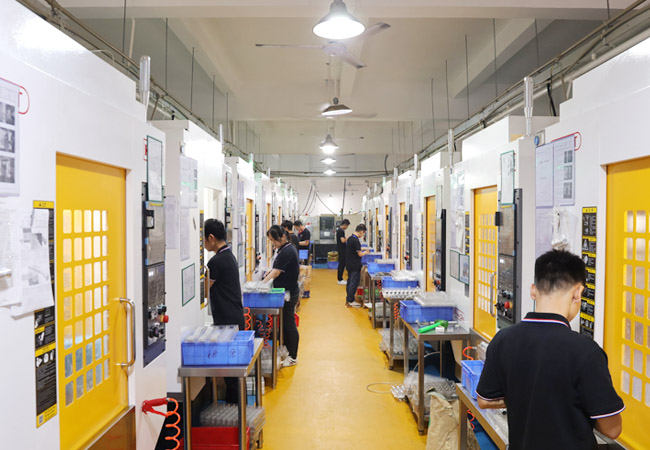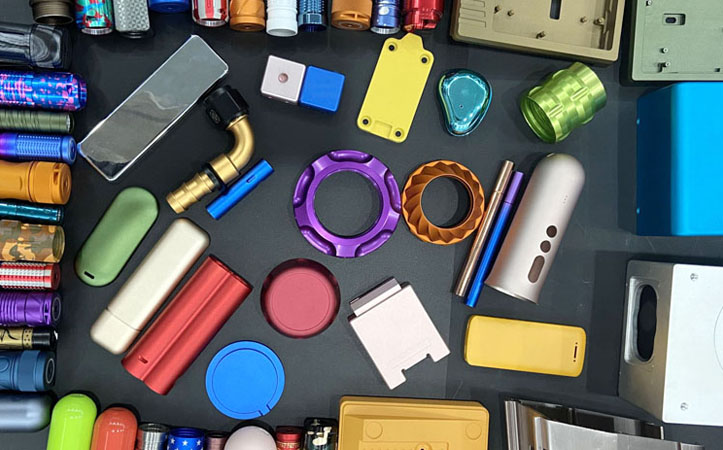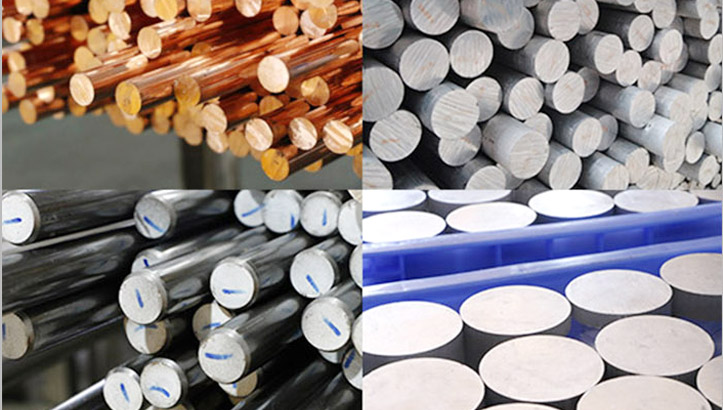How to Make Money with a CNC Machine?
Owning a CNC machine but struggling to turn it into profit? Missed opportunities can lead to financial loss. Discover proven strategies to make money with your CNC machine today.
You can make money with a CNC machine by offering custom machining services, producing small-scale products, or creating unique, personalized items. Additionally, renting your machine or teaching CNC skills are viable options.
Ready to explore how your CNC machine can generate income? Let’s dive into the top strategies below.
What is a CNC Machine Shop?
A CNC machine shop is a manufacturing facility equipped with CNC machines, which are automated tools programmed to shape and cut raw materials into finished components. VMT CNC machine shop caters to a wide range of industries, offering unparalleled precision, speed, and customization.
CNC machines use computer software to follow detailed design instructions, ensuring consistent quality. Shops vary in size, from small-scale operations focusing on prototyping to large enterprises handling mass production. Materials commonly used include metals like aluminum and stainless steel, as well as plastics and composites.
In today’s market, CNC machine shops often integrate “smart CNC machines” and provide on-demand services like CNC on demand and custom CNC machine production. These advancements make them indispensable in the computer numerical control market.

What Does a Machine Shop Do?
CNC machine shops are responsible for creating intricate parts required for various applications. Their services include:
CNC Milling: A process that uses rotary cutters to remove material and shape components with high precision. It is versatile, allowing for complex geometries and detailed finishes, making it ideal for creating features such as slots, pockets, and contours.
CNC Turning: A machining technique where a workpiece rotates while a stationary cutting tool removes material to shape it. This method is highly efficient for producing cylindrical components like shafts, rings, and bushings.
CNC Drilling: A process focused on creating precise holes using high-speed drill bits. It can be used for both through-holes and blind holes, often serving as a preparatory step for threading or other operations.
Surface Finishing: Techniques applied to enhance the durability, appearance, and functionality of machined parts. These include polishing, anodizing, and coating, which not only improve aesthetics but also provide protection against wear, corrosion, and other environmental factors.

These operations support industries like medical, electronics, and construction by delivering parts with tight tolerances and superior finishes. Shops often sell CNC equipment or offer services for CNC machining parts near me, making them accessible to various businesses. Additionally, many shops list their CNC machines for sale or provide leasing options to clients.
How to Start a Business CNC Business?
Starting a CNC business involves strategic planning and significant investment.. Here are the key steps:
Define Your Niche: Focus on specific industries, such as aerospace, automotive, or medical, and specialize in high-demand services like precision machining or rapid prototyping.
Acquire Equipment: Purchase versatile CNC machines, such as 5-axis mills or multi-functional lathes. To reduce startup costs, consider buying high-quality, second-hand CNC machines.
Hire Skilled Operators: Recruit experienced CNC operators and programmers proficient in CAD/CAM software. Look for qualified candidates through specialized job platforms and CNC vacancies.
Secure Funding: Plan your budget for machinery, workspace, and operational expenses. Explore financing options like CNC router financing to manage initial costs more effectively.
Build a Client Base: Promote your services through online marketing, trade shows, and industry connections. Offer services such as CNC contract manufacturing and custom CNC projects to attract a wide range of clients.
How to Make Money with a CNC Machine?
Maximizing profit with a CNC machine involves combining innovation, efficiency, and customer-focused strategies. Here are key approaches to generate consistent revenue and grow your CNC machining business:
1. Offer Premium Services
Diversify your offerings by providing specialized services such as CNC blueprint design, CAD/CAM programming, or consulting for manufacturing optimization. Many businesses lack in-house expertise in these areas and are willing to pay a premium for tailored support. By positioning yourself as a one-stop solution for design and machining, you can capture a larger share of the market.
2. Create a Subscription Model
Establish recurring revenue by offering subscription services to companies that require regular CNC machining work. This could include monthly retainer contracts for component manufacturing, maintenance of machine tools, or ongoing prototyping support. A subscription model ensures steady cash flow while building long-term relationships with clients.
3. Invest in Smart CNC Machines
Upgrading to smart CNC machines equipped with automation, IoT integration, and AI-driven optimization can significantly enhance productivity. These advanced machines reduce error rates, improve material utilization, and enable faster turnaround times. While the initial investment may be higher, the efficiency gains can quickly translate into increased profitability.
4. Tap into Niche Markets
Focus on niche markets where customization and precision are in high demand. Examples include crafting high-end jewelry, manufacturing drone parts, or creating specialty molds for industries like food or packaging. These markets often value quality over quantity, allowing for higher profit margins.
5. Leverage Online Platforms for Sales
Utilize e-commerce platforms and marketplaces like Etsy, Amazon, or Shopify to sell CNC-made products directly to consumers. Popular items include personalized home décor, customized furniture, or even hobbyist tools. Building an online presence and marketing through social media can help you reach a global audience.
6. Offer Training and Workshops
If you’re an expert in CNC machining, consider offering training sessions or workshops for individuals or companies looking to upskill. This could include hands-on courses in operating CNC machines, CAD/CAM software, or prototyping techniques. Teaching not only generates additional revenue but also positions you as a leader in the CNC field.
7. Collaborate with Local Businesses
Partner with nearby manufacturers, artisans, or engineering firms to provide custom machining services. By acting as their dedicated CNC machining partner, you can secure repeat orders and benefit from word-of-mouth referrals in your local community.
8. Produce High-Margin Custom Items
Focus on creating unique, high-margin products that can’t be mass-produced. For example, CNC-machined wedding rings, luxury pen holders, or intricate mechanical puzzles are sought after by niche customers and collectors willing to pay a premium.
By combining these strategies, you can unlock the full potential of your CNC machine and build a profitable, sustainable business.
How Much Does CNC Machining Cost Per Hour?
Many people are interested in the question: “How much does CNC machining cost per hour?” Indeed, the cost of CNC machining can fluctuate considerably, impacted by a wide range of factors:
Material Type: The material being machined significantly impacts cost. Common metals like aluminum, such as the best aluminum for machining, are less expensive to process compared to premium materials like titanium or Inconel. Plastics also tend to be more affordable.

Machine Type: The type of CNC machine used is a crucial cost determinant. Basic 3-axis machines typically cost less per hour, while advanced 5-axis CNC machining centers with enhanced precision and flexibility can command significantly higher rates.
Complexity of Design: Complex parts with intricate geometries, tight tolerances, or multiple setups require additional programming, machining time, and operator expertise, increasing overall costs.
Finishing and Post-Processing: Secondary operations like anodizing, polishing, or surface treatments can add to the per-hour rate.
Production Volume: Large production runs can lead to reduced costs per part through economies of scale, while prototyping or small batches might be more expensive.
Typical CNC Machining Hourly Rates
The typical range for CNC machining services falls between $50 and $500 per hour, depending on the factors mentioned. Basic operations with standard materials tend to be on the lower end, while advanced machining with specialized materials, complex setups, or finishing processes occupy the higher end.
You can read the following article for more information: How Much Does CNC Machining Cost Per Hour?
How Much Money Can Be Made From the Business?
The profitability of a CNC machine shop is influenced by several key factors that determine operational efficiency, market positioning, and customer retention. Here are the main considerations:
Service Quality: Delivering precision-machined components with tight tolerances and excellent finishes attracts repeat customers and justifies premium pricing. High-quality output builds a reputation, leading to long-term contracts and higher profit margins.
Productivity and Efficiency: Efficiently running operations, such as automating processes, reducing setup times, and minimizing machine downtime, can significantly increase output. High productivity translates to lower costs per part and greater overall profitability.
Diversification: Expanding offerings to include design consulting, prototyping, assembly, and post-processing services such as surface finishing or coatings increases revenue streams and attracts a broader customer base.
Exploring Niche Markets: Innovative CNC machining applications can further boost profitability.
How Much Do CNC Shop Owners Make?
CNC shop owners’ earnings depend on factors like specialization, location, and client base. Small shops may earn $50,000–$100,000 annually, while larger businesses can generate revenues exceeding $1 million. Specializing in high-demand sectors, such as medical or aerospace, can significantly boost profits.
Entrepreneurs interested in starting a CNC business often look for CNC business ideas or explore resources like how to make money with a CNC machine for guidance. Diversifying services to include CNC machine products and profitable CNC projects enhances revenue potential.
What Are the Most Profitable CNC Projects?
Profitability in CNC machining is determined by creative applications, demand, and high-quality execution. Below are some of the most rewarding CNC projects and their market opportunities:
| CNC Project | Description | Market Opportunity |
|---|---|---|
| 1. Customized Car Parts | Precision components like rims, engine parts, and interior accessories. | High demand from car enthusiasts seeking performance and personalization. |
| 2. Home Decor & Furniture | CNC-cut wall art, engraved signs, custom tables and chairs. | Growing interest in personalized home goods sold on Etsy and at craft fairs. |
| 3. Medical Equipment | Surgical tools, prosthetics, diagnostic machine parts. | Lucrative industry with a need for high-precision, certified machining. |
| 4. Promotional Products | Branded items such as keychains, trophies, and desk accessories. | Frequent bulk orders from companies for events and marketing purposes. |
| 5. Industrial Components | Custom jigs, molds, and replacement machine parts. | Industries are willing to pay more for tailored, reliable components. |
| 6. Innovative Consumer Goods | CNC-made kitchen tools, phone holders, and artistic sculptures. | Appeals to design-conscious buyers looking for unique, handcrafted products. |
| 7. Beginner Projects | Simple items like phone stands, cutting boards, or wooden toys. | Easy to make, popular with consumers, and ideal for skill-building and quick profits. |
Do Machine Shops Make Money for Their Owners?
Yes, machine shops can be highly profitable, especially when aligned with industry trends and technological advancements. Owners who reinvest in equipment upgrades and workforce training often achieve sustained growth. Strategic partnerships and consistent marketing efforts further enhance profitability.
Additionally, offering niche services like hobby CNC equipment sales or CNC blueprint development can appeal to hobbyists and small-scale manufacturers. Shops might also consider listing CNC machine shop for sale to attract investors.
In Conclusion
CNC machine shops are essential to modern manufacturing, providing precision and versatility. By understanding their operations, setup requirements, and cost factors, you can appreciate their value in driving innovation and business success. Whether you’re an entrepreneur or a potential client, CNC machine shops offer boundless opportunities for growth and collaboration. Leveraging services like CNC manufacturing shops, innovative ideas for CNC projects that sell, and tapping into resources such as CNC machining suppliers, businesses can thrive in this competitive field.

VMT CNC Machining Manufacturer
VMT CNC precision machining manufacturer is a manufacturer with 15 years of manufacturing experience. We are equipped with 66 multi-axis (including 3-axis, 4-axis and 5-axis) machine tools, 30 CNC lathes, and 20 automatic lathes. The services we provide include CNC machining, CNC milling, sheet metal machining, and so on.
In order to ensure product quality, we have established a comprehensive quality management system and successfully passed the IATF16949 and ISO9001 system certification. Our quality inspection process has a total of 12 steps to ensure that the yield rate in mass production can reach a high level, usually maintained at around 98%. Contact us today to get a quote for your CNC machined parts!
Frequently Asked Questions
How to Make Money with a Wood CNC Machine?
1. Custom Furniture: Create high-quality, personalized furniture like tables, chairs, or shelves.
2. Decorative Wood Items: Make carved signs, wall art, or ornaments.
3. Cabinetry: Design and produce custom kitchen or bathroom cabinets.
4. Prototyping Services: Offer your machine for crafting prototypes for local businesses or designers.
5. Etsy or Online Sales: Sell unique wood products, like puzzles, coasters, or engraved gifts, on platforms like Etsy or Amazon.
How to Make Money with a CNC Mill?
1. Machined Parts: Produce precision parts for industries like automotive, aerospace, or medical.
2. Prototyping Services: Help engineers or inventors with rapid prototyping for new products.
3. Custom Tools and Fixtures: Create specialized jigs, molds, or fixtures for manufacturers.
4. Engraving Services: Offer engraving for metals, plastics, or signage.
5. Online Custom Jobs: Use platforms like Xometry or Hubs to find clients needing CNC milling services.
How to Make Money with a CNC Router?
1. Sign-Making: Design and carve intricate wooden, plastic, or metal signs for businesses or homes.
2. Furniture Design: Craft custom wooden furniture or components for other carpenters.
3. 3D Relief Art: Sell detailed 3D carved pieces as home décor.
4. Custom Cutting Services: Provide cutting and routing services for other businesses needing precision parts.
5. Small-Scale Manufacturing: Produce bulk items like trays, cutting boards, or small boxes for retail.



